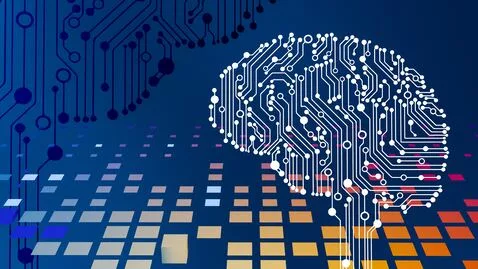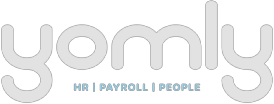The Potential Impact Of AI On Recruitment Strategies
Recruitment AI has been a hot topic in recent months, with many HR professionals and even employees debating the ethics of using a tool that has little-to-none human input and therefore potentially feels impersonal, if not entirely unnecessary. But the technology still has potential. This article explores its realistic applications, focusing on how AI can complement rather than replace human judgement in recruitment. The discussion includes insights into other recruitment software and their integration with AI, offering a balanced view for HR professionals and management. The aim is to provide a clear understanding of how AI can be a valuable asset in modern recruitment strategies.

A Brief Overview Of What AI Is (And What It Is Not)
Artificial Intelligence (AI) is a field of computer science dedicated to creating systems capable of performing tasks that typically require human intelligence. These tasks include learning from data, recognising patterns, making decisions and understanding natural language. Unlike traditional software, AI has the ability to adapt and improve its performance over time through machine learning. It’s important to note that AI is not a singular technology but a collection of technologies and techniques, including neural networks, natural language processing and machine learning.
However, AI is not the best solution for all technological challenges, nor is it an autonomous entity with human-like consciousness or decision-making abilities. It does not possess inherent understanding or emotions; it operates within the parameters set by its programmers. AI cannot replace the nuanced judgement and emotional intelligence inherent to human interaction. Its role is to augment and enhance human capabilities, particularly in data-driven tasks, rather than to act as a standalone solution.
How AI Can Be Applied To Recruitment
AI serves as a powerful tool for automating repetitive and time-consuming tasks. It enables HR professionals to focus more on strategic and interpersonal aspects of their roles. By automating routine processes, AI not only saves time but also increases accuracy and consistency in recruitment activities.
- Candidate Screening and Shortlisting: AI streamlines the screening process by quickly analysing resumes and applications against job requirements. It uses sophisticated algorithms to assess qualifications, experience and skills, ensuring a fair and efficient shortlisting process. This technology reduces the time spent on manual resume reviews, allowing HR teams to focus on engaging with the most promising candidates. Furthermore, AI can continuously learn from hiring decisions to improve future screening accuracy.
- Predictive Analytics for Candidate Success: AI employs predictive analytics to forecast a candidate’s potential for success in a role. By analysing historical data and identifying patterns, AI can predict job performance and cultural fit. This aspect of AI aids in making more informed hiring decisions and reducing turnover. Additionally, predictive analytics can identify skill gaps in the existing workforce, guiding future recruitment efforts.
- Enhanced Candidate Engagement: AI-driven chatbots and communication tools facilitate timely and personalised interaction with candidates. These tools can answer queries, provide updates and maintain engagement throughout the recruitment process. By automating these interactions, AI ensures candidates receive consistent communication, improving their overall experience. This approach helps in building a positive employer brand and attracting top talent.
- Bias Reduction in Hiring: AI can help mitigate unconscious bias in the recruitment process. By focusing on data-driven evaluations, AI tools assess candidates based on their qualifications and skills rather than subjective criteria. This leads to more diverse and inclusive hiring practices, crucial for fostering a varied workforce. Additionally, AI’s ability to anonymise candidate information further supports unbiased decision-making.
- Automated Scheduling and Onboarding: AI simplifies scheduling interviews and coordinating calendars, significantly reducing administrative burden. It can also assist in the onboarding process by automating paperwork, providing training resources, and answering new hire queries. This efficient approach to scheduling and onboarding enhances the candidate experience and speeds up the integration of new employees into the organisation. Moreover, AI-driven onboarding processes ensure consistency and compliance with company policies.
The Need For More Specialised Software
While artificial intelligence may seem like the perfect solution to a lot of HR-related challenges, it still has several shortcomings. Using dedicated HR software to address these challenges can offer more controlled, reliable, and nuanced solutions tailored to specific organisational needs. Below are some of the main functionalities of Yomly’s HR software, showcasing advanced features and capabilities that directly cater to the unique requirements of modern HR management and recruitment strategies.
- Applicant Tracking System (ATS): Our ATS is designed to manage every stage of the recruitment cycle, ensuring a smooth transition from job posting to candidate onboarding. It simplifies and accelerates the hiring process by automating and organising candidate data, which is crucial for timely decision-making. Enhanced efficiency leads to quicker hiring, reducing the vacancy period and increasing productivity. The system also improves candidate engagement, offering a more streamlined and professional experience from their first interaction with your company.
- Automated Communication: This feature ensures consistent and timely communication with candidates throughout the hiring process. Automated emails keep candidates informed about their application status, interview schedules and any other necessary updates, enhancing their experience and perception of your organisation. This structured approach to communication not only saves time for HR professionals but also demonstrates your company’s commitment to professionalism and respect for candidates’ time. It’s an essential tool for maintaining a positive employer brand in a competitive job market.
- Job Description Management: Our software includes a rich text editor that elevates job postings beyond standard text. By incorporating multimedia elements like videos, images and links, job descriptions become more engaging and informative, attracting a wider pool of qualified candidates. This feature allows for greater creativity in presenting your company and the role, making it stand out in a crowded job market. It’s an innovative way to showcase your company culture and the specifics of the role, drawing in candidates who align well with your organisation’s values and requirements.
- Video Introductions for Candidates: Allowing candidates to submit video introductions alongside traditional application materials provides a more comprehensive view of their personality and communication skills. This personal touch enables hiring managers to better assess candidates’ suitability for the role and the company culture. Video introductions add a human element to the digital application process, making it more interactive and engaging for both candidates and recruiters. This innovative approach can be particularly effective in roles where personality and presentation skills are key.
- Screening Questionnaires: Our screening questionnaires are a powerful tool for efficiently evaluating candidates. They enable HR teams to quickly identify the most suitable applicants based on specific job requirements and competencies. These questionnaires can be customised and saved as templates for future use, streamlining the screening process for similar roles. By improving the quality of shortlisting, these questionnaires significantly enhance the effectiveness of the recruitment process.
- Talent Pool Management: Our system enables the creation of a talent pool, where candidates who were not selected for one role can be considered for future opportunities. This feature is particularly useful for quickly filling vacancies with pre-vetted candidates, reducing recruitment times and costs. It also ensures that talented individuals remain connected to your organisation, potentially leading to successful placements in the future. Talent pool management is an efficient way to nurture a pipeline of qualified candidates, essential for proactive recruitment strategies.
Reflecting On The Evolving Role Of AI In The Modern World
It is clear that AI offers efficiency in automating routine tasks. However, it is also clear that it is not yet ready to serve as a permanent solution for recruitment challenges. AI aids in managing large volumes of data and streamlines processes such as candidate screening and engagement, but it lacks the nuanced understanding and emotional intelligence inherent in human judgement. This limitation underscores the need for a balanced approach, where AI is used as a tool to complement, rather than replace, human decision-making in recruitment.
Specialised software like ours bridges the gap between AI’s capabilities and the intricacies of human-centred recruitment strategies. We enhance the recruitment process by offering tailored solutions that AI alone cannot provide, such as detailed applicant tracking, personalised communication, and comprehensive candidate management. The best HR software solution is one that is both comprehensive and tailored by human hands, thereby addressing HR-related challenges in a way that does not lose the human touch.
Book a product tour today!
